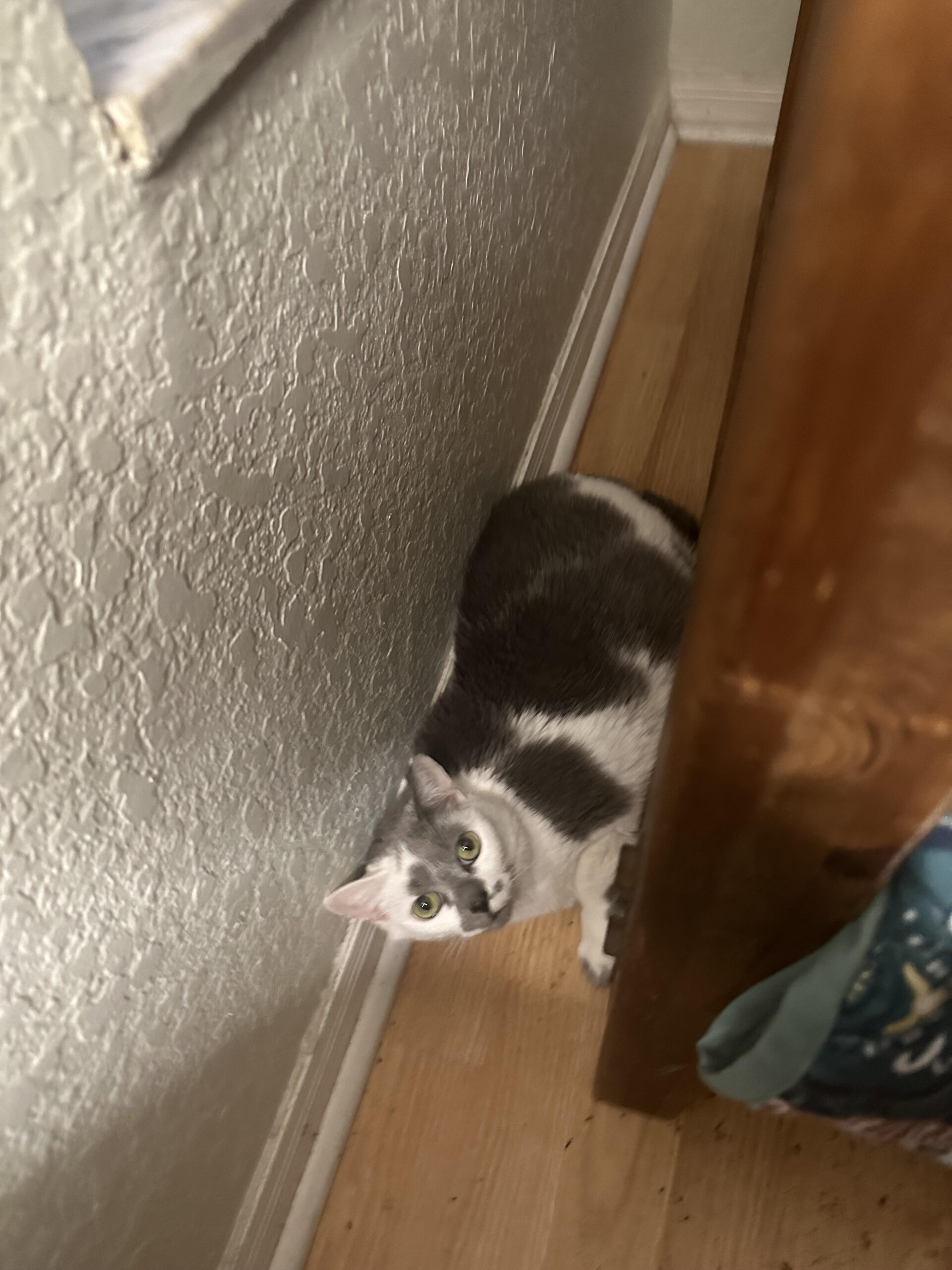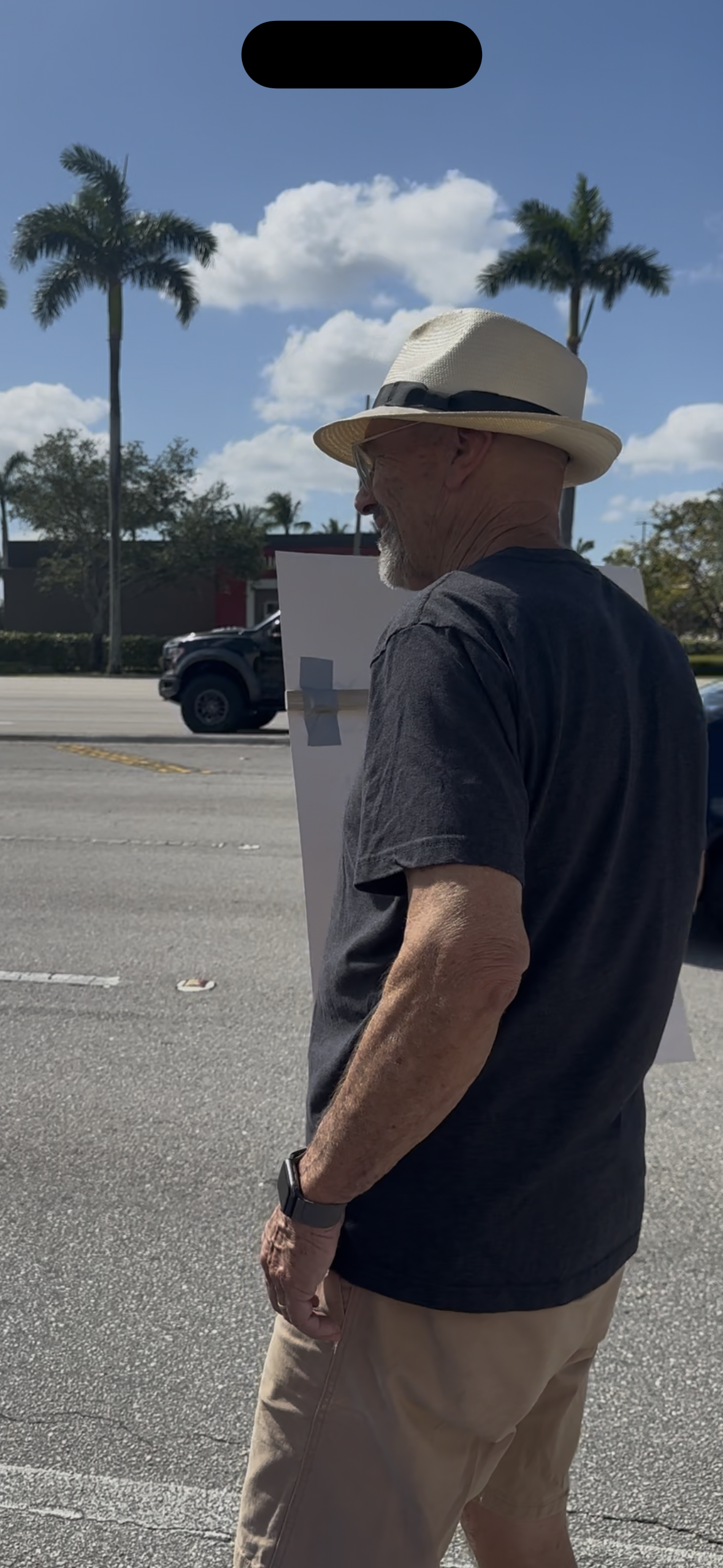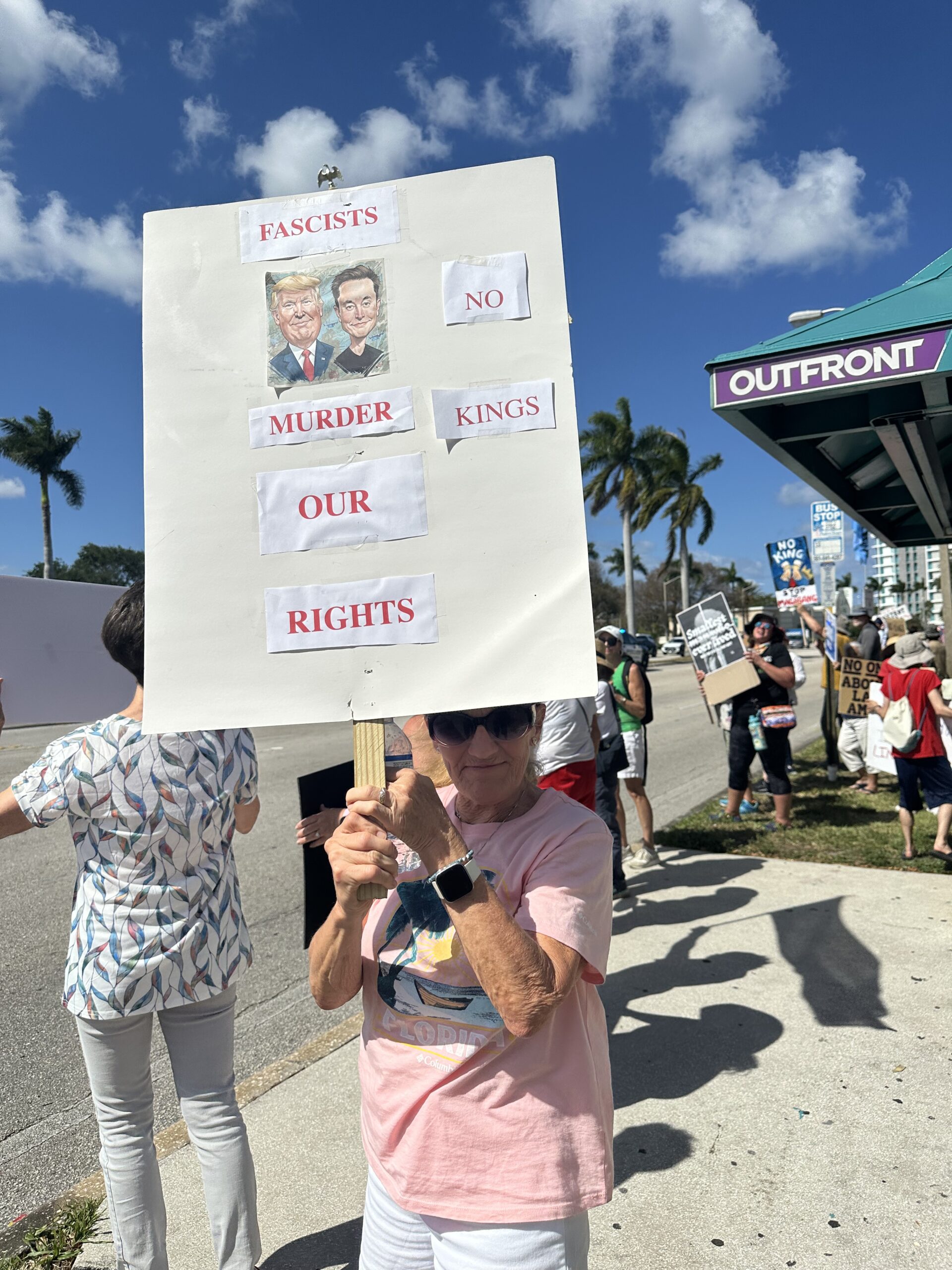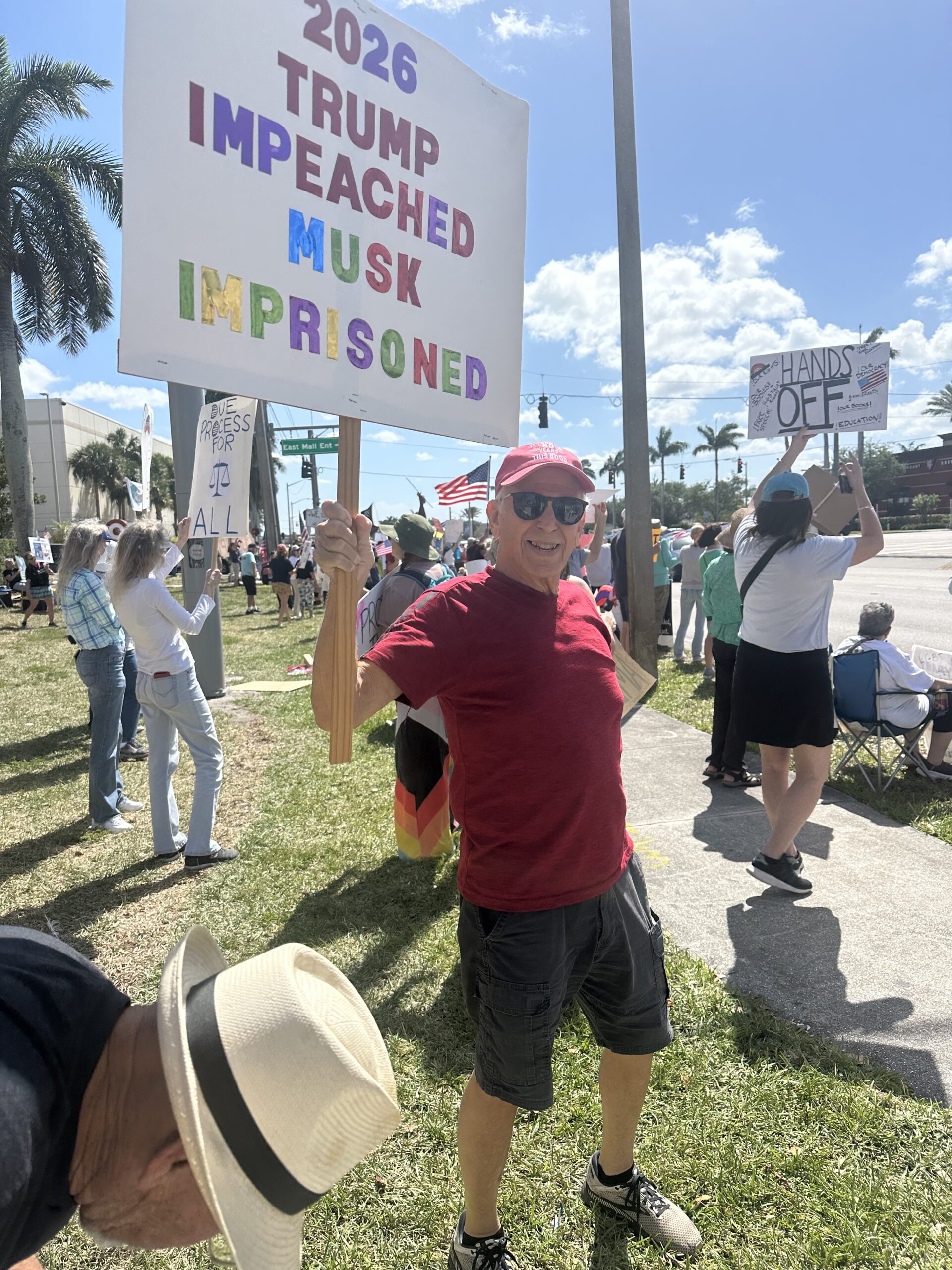Join Trish for the May 2025 astrological forecast!
My sister’s cats

Beowulf, the black and white cat

Max

& Darla
My sister, Mary, when she was between her second and third marriages, adopted three feral cats, siblings. Beowulf, Darla, and Max. When she married Neal, she moved the cats into their huge cellar because Neal is allergic to cats.
During Covid, she asked if I would adopt one of therm. So we drove to Marietta, Ga., and I went down into the cellar shaking a container of treats. Beo is the only one of the three who came out, so off he went with us to Florida.
He spent 10 days hiding under our bed and when he finally came out & discovered he could go outside, he spent the next 4 years enjoying the freedom. He and Nala became good buddies and later, when our daughter went off to Washington state to work on whale tour boats in Anacortes, we took her black cat, Binx.
In June 2023, Mary died suddenly and unexpectedly. So when we lost Beo to congestive heart failure in September 2024, I felt as if I’d lost a part of my sister.
Neal remarried earlier this year & asked if I would take the other 2 cats. We decided to meet him in Orlando & he brought the two cats, Max and Darla, and gave them to us. It was terrific to see him – the first time since Christmas 2023 – and I’m delighted he has remarried. My sister wouldn’t have wanted him to spend the rest of his life alone.
Now we’ve got Max and Darla. They’ve got the back bedroom for now and gradually, I’ll introduce them to Nala and Binx. Nigel, our Golden met them in Orlando and rode home with them in the car. But they were in carriers, so it wasn’t face to face. I’m sure he’ll welcome them just as he did Beo, Nala and Binx.
As for me, I feel like I have part of my sister again.
From a British Jungian Psychiatrist
Russell Razzaque, a British Jungian psychiatrist, publishes these You Tube videos ever few days. He now has over 100,000 subscribers and it’s obvious why. He explains trump & his antics in ways you probably won’t hear elsewhere, & his voice is consistently calm,certain, and his message is always clear.
His voice is one more that helps Americans maintain their collective sanity as the orange man does the unspeakable – continues to dismantle democracy from the inside out.
A REALLY DARK TRICKSTER SYNCHRO

This didn’t happen.But considering the proposed date was Hitler’s birthday, it felt like a dark trickster synchronicity when I wrote it. This martial law thing may still happen at some point, given how chaotic and unpredictable trump is, but then again it may not. On and off, on and off, that’s how trump keeps the country and the economy in a constant state of uncertainty.
The original post:
If you click the link below, you’ll fine a Trump proclamation about declaring martial law on April 20, three months after he entered office. April 20 is also Hitler’s birthday. Every day it such a shit show of chaos that even a trickster might be tricked!
https://www.whitehouse.gov/presidential-actions/2025/01/declaring-a-national-emergency-at-the-southern-border-of-the-united-states/
We’re eager for for the next protest, eager to see the numbers at these protests multiplying nationwide. The overall palpable vibe when you’re there? People are pissed. The energy is like that in the 60s, when the target was Vietnam & then Nixon, but the stakes vastly different: democracy.
The Mystical Underground

Join Trish and Rob for a great conversation with Jim Willis.
Jim Willis is the author of Near-Death Experiences: Afterlife Journeys and Revelations. Jim is a theologian, historian, and musician. He has been an ordained minister for over 40 years. While serving as an adjunct college professor in comparative religion and cross-cultural studies, he hosted his drive-time radio show. Upon retirement, Jim was determined to confront the essential, mystical Reality that has inspired humankind since the very beginning of time. His background in theology and education led to his writing more than twenty books on religion, the apocalypse, cross-cultural spirituality, and arcane or forgotten cultures, specializing in research bridging lost civilizations, suppressed history, and the study of earth energy, dowsing, and now out-of-body experiences
YOU TUBE: https://www.youtube.com/watch?v=OMbzhG69Ho8
Protest downtown West Palm Beach



There was about 10 trump supporters sequestered behind yellow ribbon, shouting that we were brainwashed. Projection
Video wouldn’t load. Click to see. protest video
Trump’s Fascist America
We usually watch Rachel Maddow each night for an honesty summary of another day in trump’s Fascist U.S. She often starts out with something positive – clips of protests all over the country. Some of the largest are those drawn by Senator Bernie Sanders and Congresswoman AOC. Just take a look at the You Tube & you can see why.
From the positive notes like this, Rachel then reports on the depressing facts: that the fascist admin is ignoring court orders, destroying agencies so quickly it’s difficult to keep up, and demanding that universities be turned over to the administration. In essence, that’s a much larger version of what Florida’s governor DeSantis did to the liberal New College of Florida – fired the trustees and basically took it over and turned it into a religious college.
She also discussed the dismantling of the Social Security Administration, where recipients are being declared dead when they are very much alive. Once you’re declared dead by social security, you probably wish it was true because you lose access to your bank accounts, health care, credit, and just about everything else you need to live. Dismantling an agency from the inside out seems to be this regime’s favorite thing to do, get those DOGE boys in there messing with computers and no telling what horrors you may see.
I’ve asked psychics and other astrologers where they see all this going. During orange monster’s first term, I discovered I couldn’t read his chart objectively. So yesterday I emailed asteroid astrologer Alex Miller what he saw astrologically related to trump. Every day it’s worse and more appalling. Who’s going to stop this orange monster?
Alex’s response: I’ve given up on predicting what this idiot will do, or how things will turn out. so many times it seems like ‘this is it!’ and then nothing happens. sorry, but i have no guidance to offer in this matter.
So here we are. Trump is deporting people without due process, says he’d like to deport Americans, too, & it’s like the history books I read about Hitler and the SS… about every Fascist regime anywhere on the planet at any point in history.
Miguel Conner: The Mystical and Magical Life of Elvis
Join Trish and Rob for a conversation with…
Miguel Conner, writer, voiceover artist, and host of the popular
podcast Aeon Byte. He has written several books and dozens of articles, including The Occult Elvis and Voices of Gnosticism.
He has lectured or appeared at events such as The Duncan Trussell Family Hour, Open Minds on GaiaTV, New Thinking Allowed, Dreamland with Whitley Strieber, Runesoup, The Higherside Chats, and The Gnostic Countercultures Conference at Rice University.
Miguel Conner is the host of the popular podcast Aeon Byte Gnostic Radio. His books include Stargazer, Heretic, and The Executioner’s Daughter. He lives in northern Illinois.
The Mystical Underground
Blog: https://themysticalunderground.com
YouTube: https://www.youtube.com/@themysticalunderground
A Synchro a Century in the Making

Sometimes a synchronicity takes a century to manifest. That’s the case with the one between The Beer Hall Putsch of 1923 and the January 6, 2021, attack on the U.S. Capitol. Both were attempts to disrupt the established democratic processes of their respective nations. While they occurred in different historical and political contexts, they share notable similarities and differences.
Likewise, there is a related synchronicity between what happened to democracy in the months after Hitler took power and when Trump assumed the presidency for his second term.
I thought it would be interesting to let AI make the comparisons. So I asked Chat GPT to analyze these events. Here is the response:
Beer Hall Putsch (1923):
On November 8–9, 1923, Adolf Hitler and the Nazi Party, along with General Erich Ludendorff, attempted to overthrow the Weimar Republic by initiating an insurrection in Munich, Germany. They aimed to seize control of the Bavarian government and ultimately march on Berlin to establish a nationalist regime. The coup began at a beer hall, where they declared a national revolution. However, the putsch failed when police forces clashed with the Nazis, leading to several deaths and the arrest of key leaders, including Hitler. Hitler was subsequently convicted of treason and sentenced to prison, during which he authored “Mein Kampf.” HISTORY+5Encyclopedia Britannica+5Origins+5Origins+1the peper perspective+1
January 6 U.S. Capitol Attack (2021):
On January 6, 2021, supporters of then-President Donald Trump stormed the U.S. Capitol in an effort to prevent the certification of President-elect Joe Biden’s electoral victory. This followed a rally where Trump reiterated unfounded claims of election fraud and encouraged his followers to “fight like hell.” The rioters breached police barricades, vandalized property, and forced the evacuation of members of Congress. The attack resulted in multiple injuries and deaths, including law enforcement officers. In the aftermath, numerous individuals were arrested and charged, and Trump was impeached for incitement of insurrection, though he was later acquitted by the Senate. AP NewsThe Guardian+1Wikipedia+1Wikipedia+3Wikipedia+3Homeland Security Committee+3
Comparative Analysis:
- Motivation and Leadership: Both events were driven by leaders refusing to accept political outcomes—Hitler sought to overthrow the Weimar Republic, while Trump and his supporters aimed to overturn the 2020 election results. In both cases, the leaders played pivotal roles in inciting their followers to act against the existing government structures.
- Execution and Outcome: The Beer Hall Putsch involved an attempted military coup starting in Munich, intending to spark a larger national revolution. In contrast, the January 6 attack was a direct assault on the legislative branch to disrupt a constitutional process. Both attempts failed in their immediate objectives but had significant political repercussions.The Nation+8the peper perspective+8The Holocaust Explained+8
- Legal and Political Consequences: After the failed putsch, Hitler’s trial and imprisonment provided him with a national platform, inadvertently aiding his rise to power. Following January 6, Trump faced impeachment and widespread criticism, but he remained a central figure in American politics, with ongoing debates about his influence and accountability.Wikipedia
Now turning to the comparative attacks on democracy. Again, I asked Chat GPT to make the comparisons.
Hitler’s Consolidation of Power in 1933:
Upon his appointment as Chancellor on January 30, 1933, Hitler swiftly moved to consolidate power and dismantle Germany’s democratic structures:
- Reichstag Fire and Emergency Decree: Following the Reichstag fire on February 27, 1933, Hitler persuaded President Paul von Hindenburg to issue the Reichstag Fire Decree, suspending civil liberties and enabling the arrest of political opponents, particularly Communists.
- Enabling Act: On March 23, 1933, the Reichstag passed the Enabling Act, granting Hitler’s cabinet legislative powers and effectively sidelining the parliament. This act laid the foundation for a legal dictatorship. Wikipedia
- Gleichschaltung (Coordination): The Nazis systematically brought all societal institutions under party control, dissolving trade unions and banning opposition parties, culminating in a one-party state by mid-1933.
Trump’s Actions in Early 2025:
In the initial months of his second term beginning January 20, 2025, President Trump undertook measures that raised concerns about democratic norms:AP News+2Wikipedia+2PwC+2
- Executive Orders and Agency Restructuring: Trump issued numerous executive orders targeting immigration policies and restructuring federal agencies. The establishment of the Department of Government Efficiency (DOGE), led by Elon Musk, aimed to streamline government operations but resulted in significant cuts to various agencies, including the Department of Education and USAID. Business Insider+1The Guardian+1
- Pardons and Appointments: He pardoned individuals involved in the January 6 Capitol attack and appointed loyalists to key positions within the FBI and military, actions perceived as consolidating power within the executive branch. AP News
- Attempts to Control Independent Agencies: The administration sought to assert control over independent bodies like the Federal Communications Commission (FCC) and the Securities and Exchange Commission (SEC), moves that critics argued undermined the independence of regulatory institutions. Business Insider+2AP News+2reuters.com+2
Comparative Analysis:
- Legal Frameworks: Both leaders utilized existing legal mechanisms to legitimize their actions. Hitler’s Enabling Act provided a veneer of legality to his consolidation of power, while Trump’s extensive use of executive orders operated within the bounds of presidential authority but tested the limits of democratic norms.Holocaust Encyclopedia
- Institutional Resistance: Hitler faced minimal institutional resistance due to the swift suppression of opposition. In contrast, Trump’s actions encountered pushback from courts, Congress, and civil society, reflecting the resilience of American democratic institutions.
- Public and Political Response: Hitler’s moves were met with both support and intimidation-induced acquiescence, facilitating rapid changes. Trump’s initiatives led to polarized reactions, including significant public protests, legal challenges, and political debates, indicating a more contested process.
While both leaders sought to centralize authority and diminish checks on their power early in their terms, the effectiveness and speed of their actions were influenced by the strength and responsiveness of existing democratic institutions and the broader political culture.
Margaret Atwood & that Handmaid’s Tale

Canadian author Margaret Atwood published her classic Dystopian novel in 1985. I think I read it when I was pregnant with our daughter, Megan, around 1989. I was horrified as I read it in a couple of days and comforted myself by believing now that someone had written this terrifying novel, it would never happen in real life.
Now, 40 years after it was published, the book stands out as an example of an author who saw the future, the world where we now find ourselves. Except this version we’re living is worse than anything Atwood envisioned.
Atwood captured the sexism, the idea of women as tools for men to use however they want, women as slaves to male patriarchy in all its disgusting nuances.But she didn’t capture the utter chaos and cruelty of what happens when a democracy is turned inside out by an administration that has no idea what the hell it’s doing or why. It’s as if a bunch of wild, untamed, uncivilized human beings have been unleashed on the country and the world.
While they’re cackling away in D.C., congratulating themselves on how well they’ve cut waste in the U.S. government – how many thousands of federal workers have been fired to date? – children worldwide who depended on USAID are starving, dying. The elderly and disabled are getting robbed blind. Schools and universities are losing critical funding for students, scientists, research. That’s just the surface of things.
Hurricane season begins on June 1. But with NOAA on the cutting block, many of its workers fired, who is going to track the storms this season? Trump, with his sharpie pen? With the CDC shrinking and RFK Jr. in charge of health & human services, measles are spreading, kids are dying from too much vitamin A and cod liver oil that the man with ZERO medical experience is advocating.
The stock market is tanking. Books are being banned. The Department of Education has been obliterated. This points to one of their goals: make the population stupid so they’ll believe anything we tell them.
So here we are, well beyond the Dystopia that Margaret Atwood wrote about. Yet, there are still people who are applauding for Trump.
A retired attorney: Trump’s intentions are good.
A retired physician: He won’t touch Social Security. We paid into it.
A brainwashed neighbor, after being told that ICE was in the neighborhood, trying to round up Mexican immigrants who work in the equestrian industry: Trump’s doing great.
A Jewish woman I’ve known for 50 years told me she was voting for trump and when I pointed out that he hates Jews, Latinos, people of color, women, anyone who isn’t a white guy, her response was: it’s the border.
“Have you been to the border?” I asked her.
“Well, no, but on Fox News…”
And right then, I knew that nothing I said would change her mind. Right then, I knew tht 50 years had been swept away.







